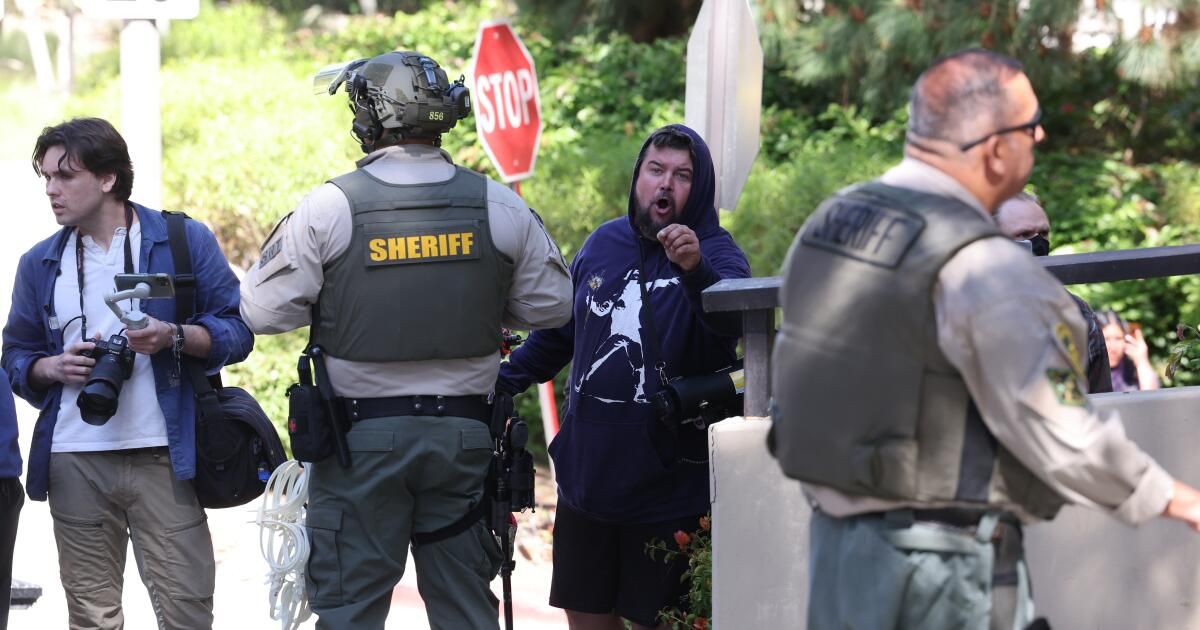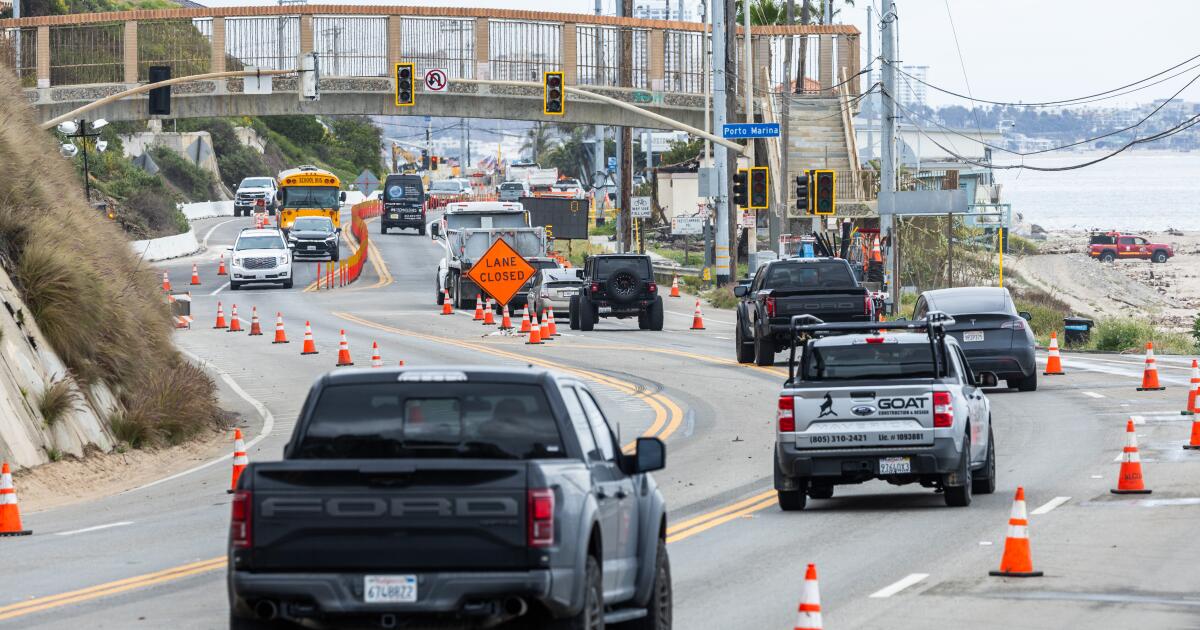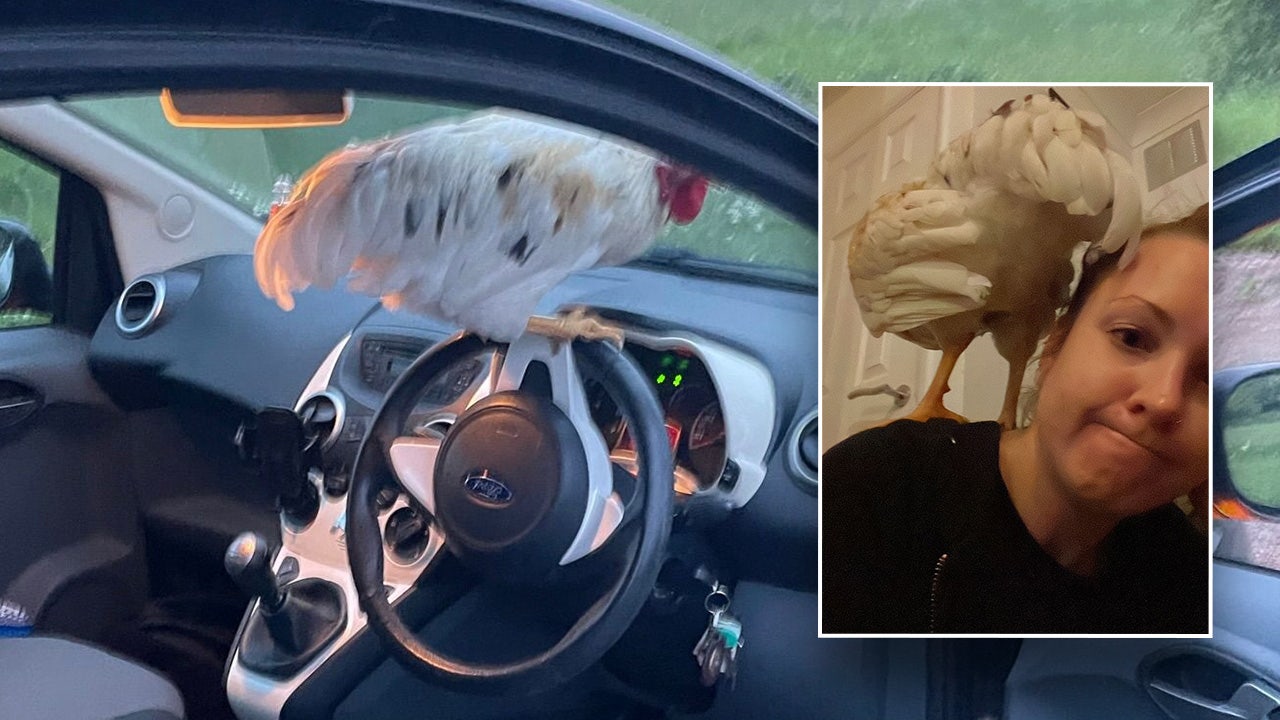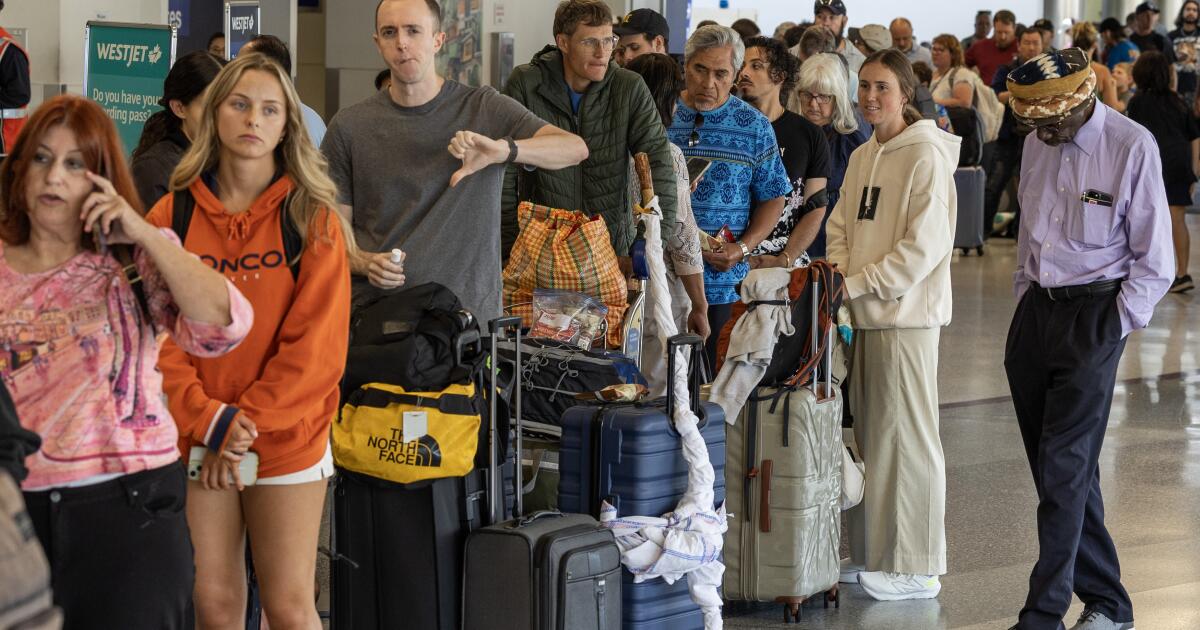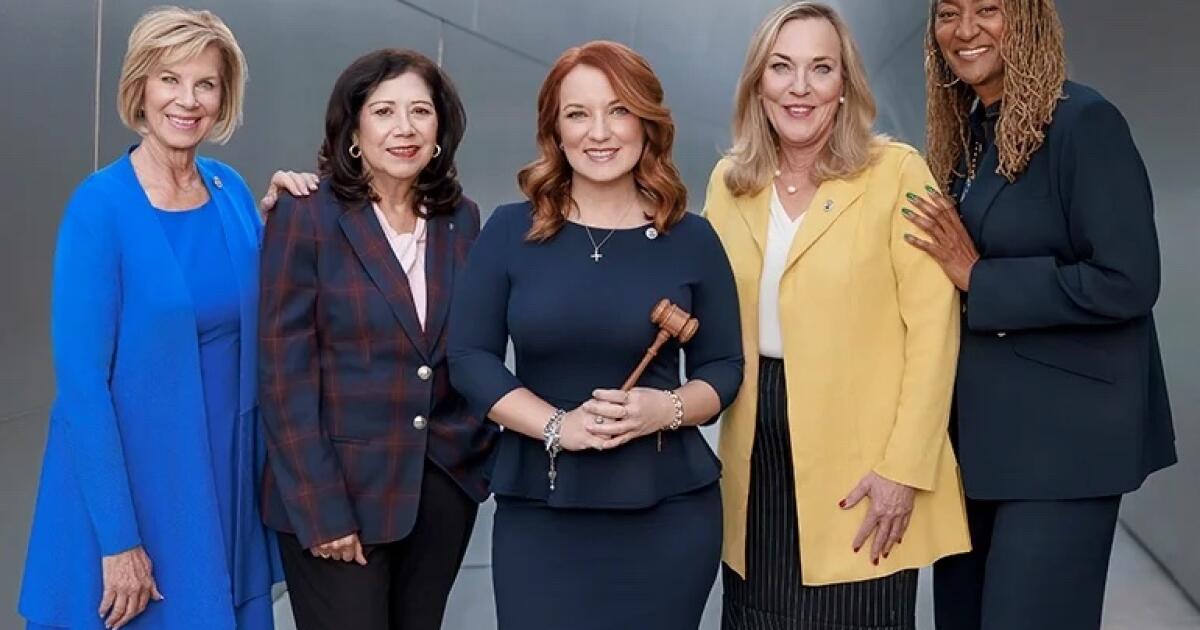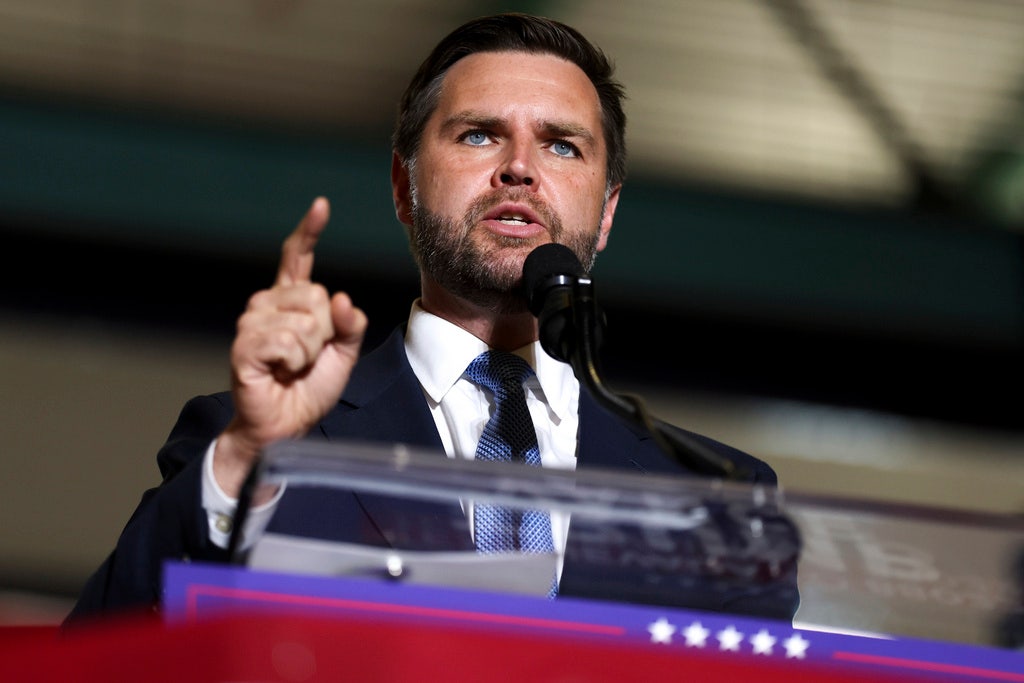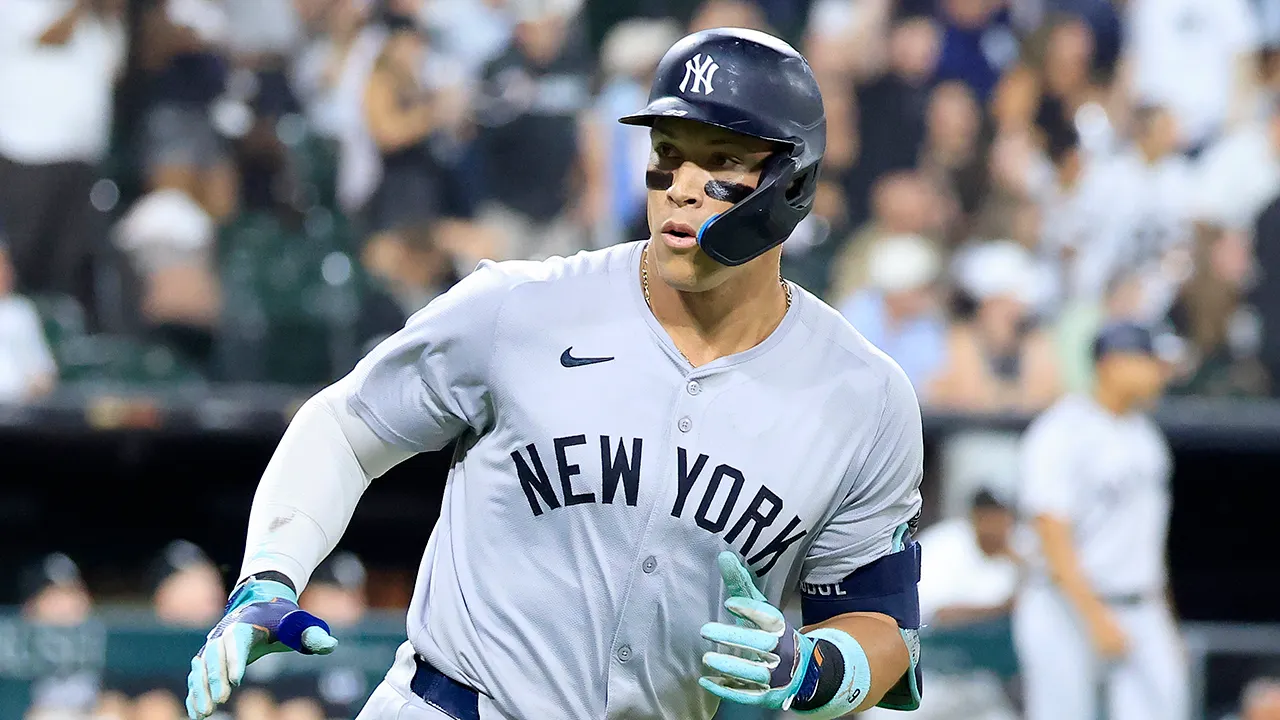A freelance journalist and prominent police critics were among dozens of people detained by police on the UCLA campus amid ongoing Gaza war protests Monday morning, drawing objections from legal experts and press organizations.
Journalist Sean Beckner-Carmitchel, who has a long history of covering protest movements in Los Angeles and whose video work in particular has appeared in several major media outlets, was detained, with his hands tied behind his back, as he watched the arrest. . of dozens more people in a campus parking lot, according to video of the incident.
William Gude, a prominent critic of police in Los Angeles who regularly records officers on the street for his large social media followers, was also among those arrested, according to a livestream he recorded and posted on YouTube.
The university said 44 people were arrested but gave no further details. Its Police Department did not immediately respond to questions about Monday's situation or a possible curfew.
As of Friday afternoon, Los Angeles city prosecutors had not received “any law enforcement submissions arising from the protests at USC or UCLA for consideration,” said Ivor Pine, a spokesman for the Los Angeles prosecutor's office. the city. The Los Angeles County district attorney's office did not respond to multiple requests for comment.
None of those detained could immediately be reached for comment. However, their arrests sparked immediate demands from others for their release.
“Unless they can provide an explanation, please ensure that both Beckner-Carmitchel and Gude are released immediately,” wrote Adam Rose, press rights president for the Los Angeles Press Club, in an email to campus leaders.
In her own email to campus officials, Susan E. Seager, who directs the Press Freedom Project at UC Irvine School of Law and represents independent journalists in court, called Beckner-Carmitchel's detention unlawful. , including under a recent California law that expanded the rights of journalists in protests and demanded their release.
“Sean had the right to film the police even if the police had set up police lines or even if they had declared a curfew,” he said in an interview with The Times.
Seager also warned that it would be illegal for police to search any of Beckner-Carmitchel's devices.
“It appears he was arrested simply for filming UCLA police making arrests or completing arrests of students in a public parking lot,” Seager said. “Sean's arrest is illegal, period. He was not interfering with the police.”
Other “citizen journalists” like Gude and legal observers also enjoy similar First Amendment protections, he said.
In addition to Beckner-Carmitchel's arrest and his own, Gude's video showed the arrest of Gina Viola, another prominent progressive activist and former mayoral candidate, and audio of the broadcast that continued after the image became black when Gude was detained suggested that legal observers were also detained.
Legal observers are typically lawyers trained to monitor interactions between protesters and police and monitor for rights violations, while refraining from direct protest actions. Arresting them raises similar concerns as arresting journalists: namely, that it stifles independent police oversight of such events.
Gude's video showed a line of detained people sitting against a parking lot wall as he and other independent journalists and legal observers looked on. Some of the observers wore bright green hats, a recognizable item worn by the National Lawyers Guild. The guild did not immediately respond to a request for comment.
Gude said in the video that he was outside when he saw police begin to enter the parking lot. He followed and watched officers begin to detain people on the third floor of the structure, she said.
As its flow continued, sheriff's deputies arrived and joined what appeared to be campus police, surrounding the observers. Officers then detained Beckner-Carmitchel.
“He has a press credential,” Gude objected.
Officers then detained and tied up Viola and then Gude.
“Put your hands behind your back,” one told Gude.
“Why am I detained?” —Gude asked. “They are arresting journalists.”
Gude's video then went black, but the audio continued as he criticized the officers.
“We'll see what this looks like: You detain members of the press because you don't want anyone to see what's happening,” he said. “You don't want the world to see what's going on, so, you know, turn off the cameras so no one can see.”
Law enforcement agencies have consistently had problems detaining and arresting journalists in protests in recent years.
The LAPD in particular has faced criticism for detaining journalists, including during the cleanup of a homeless encampment in Echo Park in 2021. Seager represents two Knock LA journalists who sued the department over their arrests. A detained Times journalist was released without charge.
Beckner-Carmitchel was also nearly arrested during the Echo Park incident. When a Times reporter contacted a Los Angeles police spokesperson to inform him that Beckner-Carmitchel was a working journalist, the spokesperson said Beckner-Carmitchel's credentials were invalid.
The LAPD also faced allegations of targeted harassment of a journalist when officers arrested and later charged journalist Lexis-Olivier Ray during raucous celebrations downtown after the Dodgers' 2020 World Series victory. Police conducted 18 arrests were made during the fight, but the reporter was the only person against whom the city attorney's office filed charges for failure to disperse. The charges were later dropped.
Governor Gavin Newsom subsequently signed a law expanding the right of journalists to cover protests, and the LAPD adopted a policy affirming the right of journalists from major media organizations and independent outlets to cover protests and enter areas that the police have blocked.
However, the Los Angeles police and other law enforcement agencies have been accused of continuing to violate the rights of journalists covering the protests. Media outlets have filed similar complaints against law enforcement agencies across the country.
Times reporter James Queally contributed to this report.

